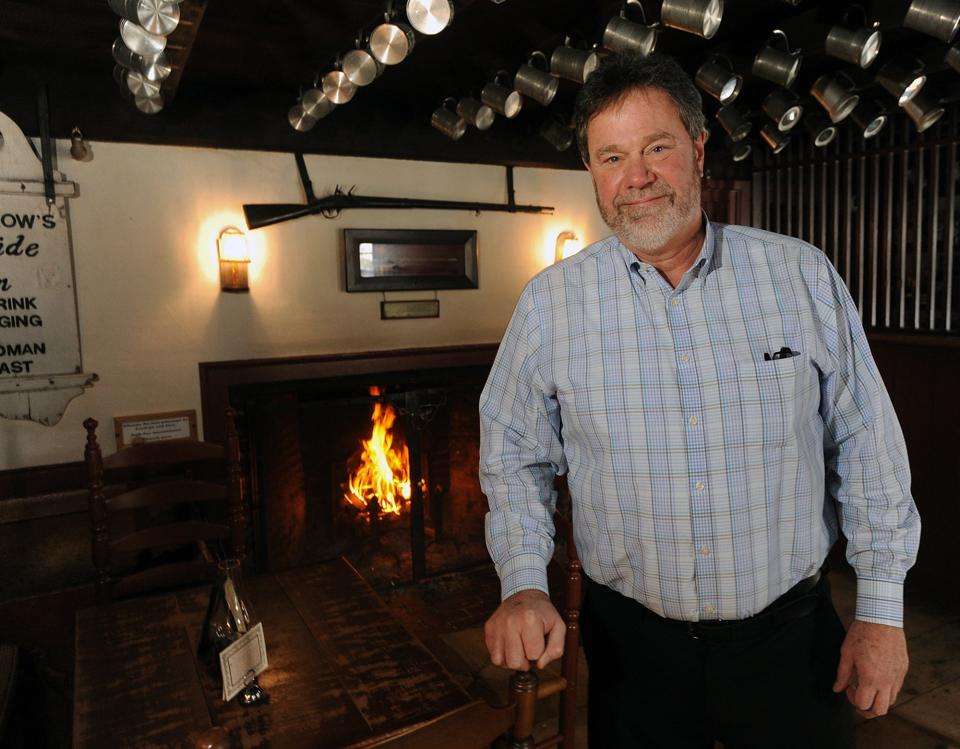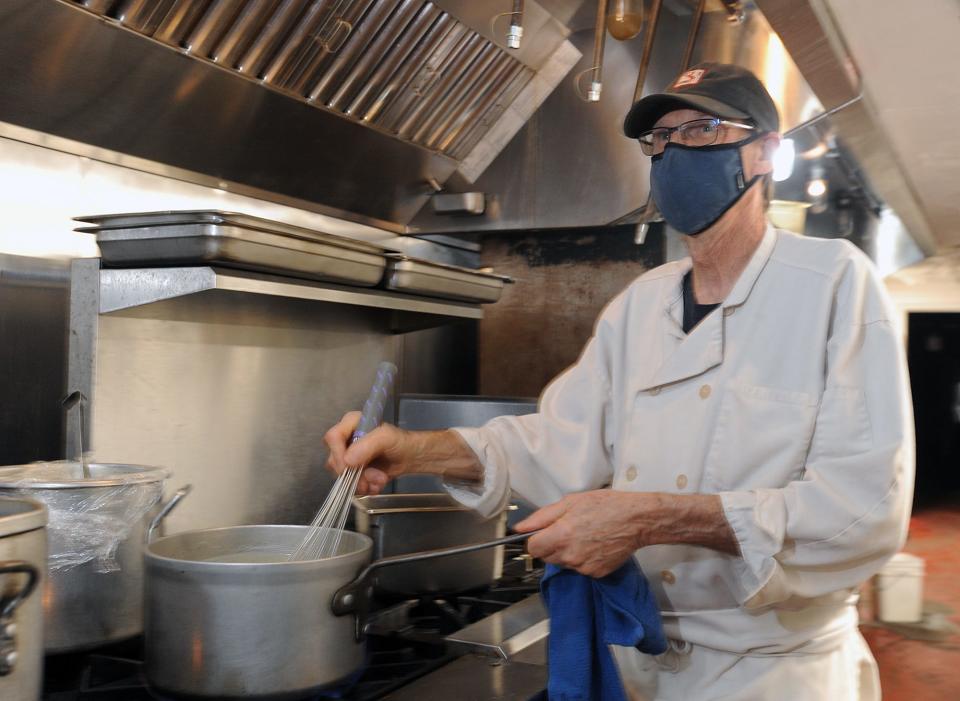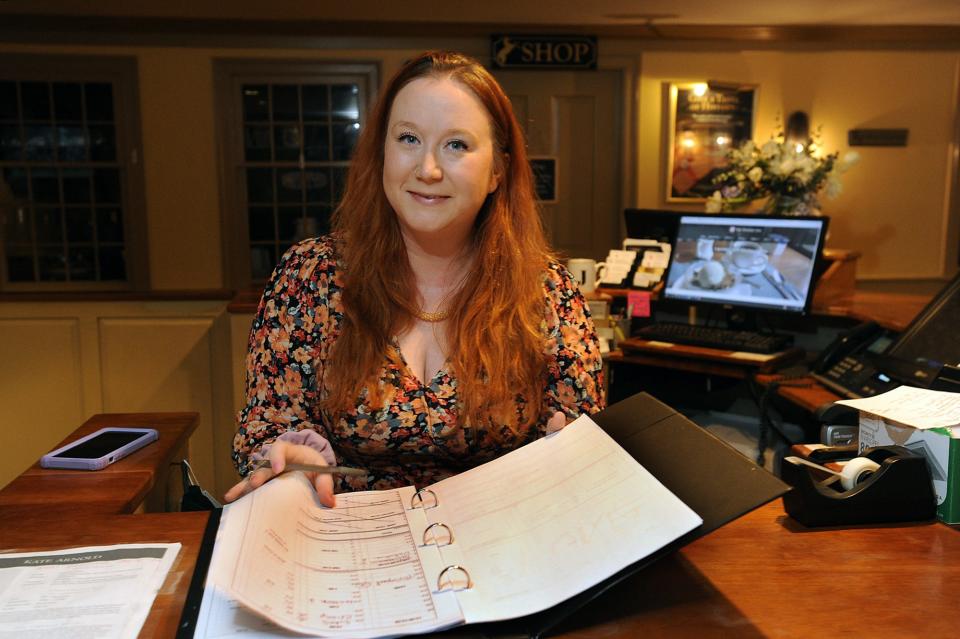Industry leaders, business owners examine impact of 'Great Resignation'
Alan MacIntosh, co-owner of Doragon Ramen in Ashland, has been hit by the pandemic on multiple fronts.
Supply chain problems have caused products he buys regularly to skyrocket in price.
Takeout boxes in a bulk, for example, used to cost $30; now, they're $90. Some items he can't even buy anymore and needs to make in-house, causing costs to increase even further.
He's also finding it to hard hire workers. Right now, the ramen shop at 1 West Union St. has less than 10 employees. Ideally, it should have 15.

MacIntosh is far from the only business owner who is feeling the pressures of the so-called "Great Resignation." In November, about 4.5 million people quit their jobs nationwide, according to the Bureau of Labor Statistics.
The phenomenon began around last April, with workers throughout the country quitting their jobs en masse. Some are retiring early. Others are taking higher-paying jobs elsewhere. And still others are starting their own businesses.
Jim Giammarinaro, president and CEO of the MetroWest Chamber of Commerce, said the pandemic has caused many people to recalibrate how they balance their personal and professional lives.
There are so many job openings and opportunities that many people are trying their hand at new careers, he said.

Also,people are still concerned about working public-facing jobs during a global pandemic, Giammarinaro said.
"There's still the fear of COVID, which is still keeping people away from going back to work," he said.
One potential solution is for employers to broaden their candidate pools and think more creatively about attracting candidates, according to Jen Howland, marketing director at the Robert Half Talent Solutions.
The company, which has offices at 161 Worcester Road (Route 9) in Framingham, helps employers hire both contract workers and permanent employees. Its clients include those in the fields of technology, financing, customer service, marketing and legal services.
"When there is such a shortage, (employers) should really hone in on three or four things that are absolute must-haves. ... Maybe a couple of years ago, they wanted a list of 10 things," Howland said. "Can we shorten that down to five?"
These days, workers are placing a greater emphasis on good company culture, she said. The pandemic has also opened many people's eyes to the benefits of remote work and the leverage they have in the job market.

"I think everybody should be looking at their pay scales at this point, figuring out ways to broaden their search," she said.
MacIntosh frequently has to scramble to get shifts covered because some employees aren't available during key hours.
And even though he said he has spent thousands of dollars on advertising for help, some applicants don't even show up for scheduled interviews.
"I've gotten almost no help from it," MacIntosh said of advertising efforts. "Ninety-eight percent of the time when you schedule an interview, they never show up."
He suspects candidates are applying to many places, often finding more pay or benefits that MacIntosh can't afford to provide. He also has concerns applicants are committing unemployment fraud.
While the pandemic has certainly done a number on employment numbers, business owners already knew a crisis was brewing years ago, said Bob Luz, president and CEO of the Westborough-based Massachusetts Restaurant Association.
One huge reason — baby boomers are getting older and retiring. Boomers currently range in age from 57 to 76.
"Everybody assumes that 100% of the cause has been the pandemic," Luz said. "But that's not the case. We have been anticipating this shortage for a number of years now. The larger driving issue is the fact that many baby boomers are retiring every day — numbers that are leaving the workforce like we've never seen."
There aren't enough people entering the workforce to make up for the loss, he said.
Giammarinaro agrees.
"I think the bigger issue long-term is the aging of our population and the number of available workers to meet jobs," he said.
Add in the pandemic, and the situation becomes significantly worse.
"There were 300,000 people that worked in the restaurant industry on March 15, 2020. Two days later, we furloughed 255,000 of them, and a lot of people found their ways to different careers," Luz said. "It's caused us to have to build from the ground up again, and that takes awhile."
MacIntosh said he knows of some restaurants that are using robots to replace jobs they can't fill with humans. But he's against the idea, because he thinks going to a restaurant should be a social experience, one involving face-to-face contact.
That isn't just happening in the restaurant industry, Giammarinaro said.
"You look at hotels that are using robots to clean rooms," he said. "You look at manufacturing facilities that are doing advanced manufacturing and have less need for people. It's not just being done for efficiency’s sake. It's being done because they can't find people."
Steve Pickford, innkeeper and general manager at Longfellow's Wayside Inn in Sudbury, said he was "starving for help" between last summer and November.
Because of the omicron variant, business over the past few months has not been great. But January is typically a slow month anyway, so he says he's fine for now.
The inn/restaurant, at 72 Wayside Inn Road, has 40 full-timers and 50 part-timers. Ideally, Pickford said he would like to have another 20 people on staff for the busier months.
"We've been down 20% to 25% from what we had in 2019 and 2018," he said.
He blames it in part to the start of pandemic, when people stayed home and collected enhanced unemployment checks, he said. These days, he is still trying to figure out how the situation has gotten so bad.
"The hospitality industry was hit pretty hard and now it goes way beyond that," he said. "It's distribution, manufacturing, everything."
The best option, he said, is to just "weather the storm."
"I think everybody in this industry is in the same boat," Pickford said. "I don't think there is a crystal ball that's going to tell you, 'OK, at this point in time, we'll be back to normal.' I think we're all just hopeful."
Cesareo Contreras can be reached at 508-626-3957 or ccontreras@wickedlocal.com. Follow him on Twitter @cesareo_r.
This article originally appeared on MetroWest Daily News: MetroWest businesses fee pinch of 'Great Resignation'
